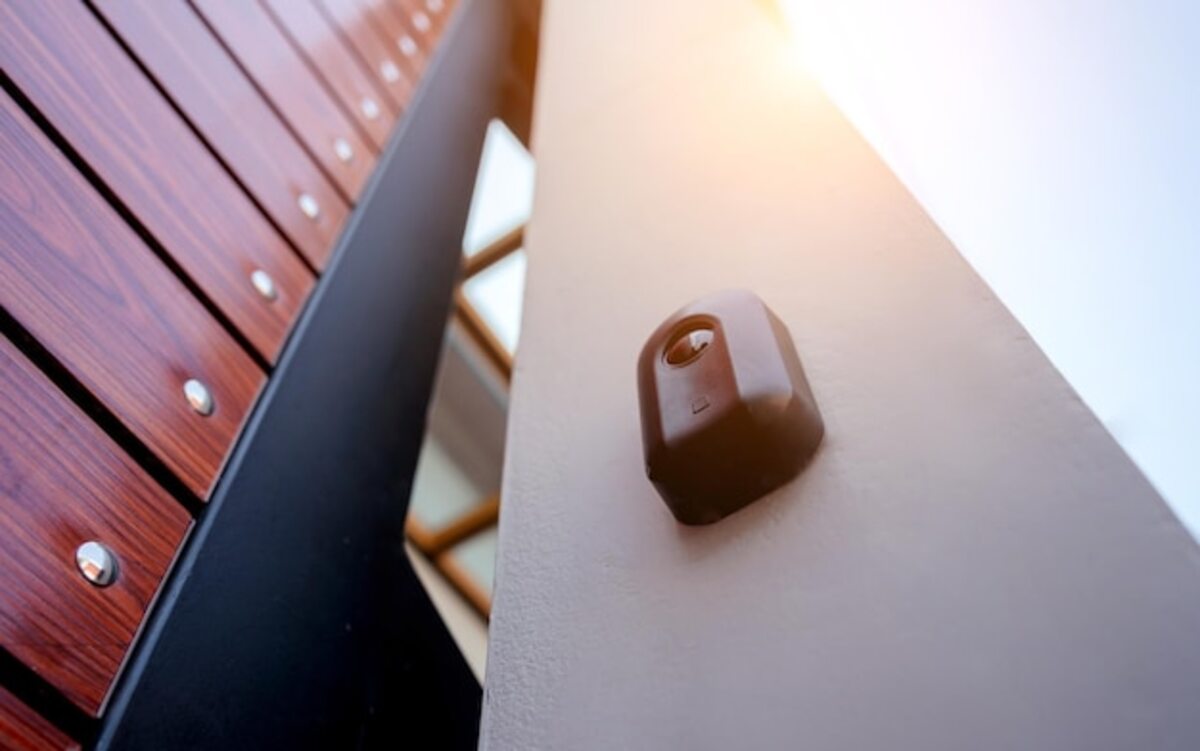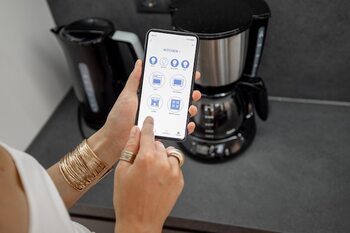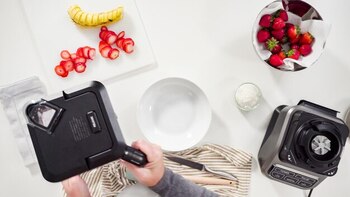New trends in smart locks for secure homes

Home security has evolved with the arrival of smart locks, which combine advanced technology and convenience. In a world where protecting our loved ones and belongings is paramount, these innovative locks offer practical and effective solutions. From remote control to access through mobile apps, discover how these trends can transform your home into a safe and modern refuge. Join us in exploring the new options that are setting the standards in security and technology.
1. What are smart locks and how do they work?
Smart locks are security devices that allow access to a home through digital methods instead of physical keys. These systems can include features such as PIN codes, biometric recognition, or connectivity via Bluetooth and Wi-Fi. By integrating advanced technology, smart locks not only secure entry to a property but also offer the ability to monitor and control access remotely. This means that homeowners can lock or unlock doors from anywhere using their mobile phones, adding an additional layer of convenience and security.
The operation of these locks generally relies on a mobile application that acts as the control center of the system. Users can create customized profiles for different household members, granting specific permissions as needed. Additionally, many smart locks are designed to send real-time notifications to the owner when someone accesses the house, allowing for constant and effective monitoring. With options like temporary access for visitors or maintenance services, smart locks not only simplify daily life but also provide peace of mind by knowing who enters and exits the home at all times.
2. Advantages of installing a smart lock in your home.
Installing a smart lock in your home offers numerous advantages that go beyond simple security. First, these locks allow remote control of access to your home, meaning you can manage who enters and exits from anywhere using your smartphone. This is especially useful for receiving visitors or granting access to maintenance services without the need to be present. The convenience and flexibility they provide eliminate the worry of losing keys or having extra copies distributed among family and friends.
Another significant advantage is the ability to monitor activity in real-time. Many smart locks send notifications to your mobile device every time they are used, allowing you to keep a detailed record of who accesses your home and when. Additionally, some even offer features like temporary access codes, which is ideal for occasional visitors. With these functionalities, you will not only improve the physical security of your house but also gain greater peace of mind knowing exactly who has access to your most cherished spaces.
3. Comparison between smart locks and traditional locks.
Traditional locks have been the standard option for home security for decades, relying on mechanical mechanisms that require physical keys for operation. These locks are generally more accessible in terms of cost and easy installation, but they have certain limitations. For example, if a key is lost, it is necessary to change the lock or make additional copies, which can be costly and impractical. Additionally, conventional locks do not offer tracking or remote control, which can leave homeowners vulnerable in situations where they need to access their home without a key. On the other hand, smart locks bring with them a number of significant advantages that make them stand out compared to their traditional counterparts. Equipped with advanced technology such as Wi-Fi or Bluetooth connectivity, they allow access through mobile apps, numerical codes, or even biometric recognition. This not only eliminates the need to carry physical keys but also provides greater control over who enters and exits the home. With additional features such as activity alerts and access logs, users can monitor their property in real-time, thereby increasing the overall security of the home and providing peace of mind to its residents.
The choice between smart locks and traditional ones will depend on individual needs and each person's approach to security; however, it is undeniable that smart locks are revolutionizing the way we protect our spaces.
4. Integration with home automation systems: beyond security.
The integration of smart locks with home automation systems goes beyond mere security. These innovative solutions allow for seamless interconnection with other home devices, such as surveillance cameras, motion sensors, and smart lighting systems. For example, when opening the door, it could be programmed for the hallway lights to turn on automatically and for the cameras to start recording. In this way, not only is secure access ensured, but a more comfortable and functional environment is also created, adapting to the user's daily routines.
Additionally, these locks can be a fundamental part of an integrated system that optimizes the home's energy efficiency. When combined with smart thermostats and other automated technologies, it is possible to set schedules for closing or opening doors that align with the use of different areas of the home. Thus, when leaving in the morning, the system could automatically activate "away" mode, ensuring that all lights are turned off and appliances are put to rest. This type of integration not only enhances security but also contributes to a more sustainable and efficient lifestyle.
5. The best smart lock brands on the market.
Smart locks have gained popularity due to the combination of security and technology they offer, and several brands stand out in this competitive market. Among them, August has been recognized for its sleek design and ease of use. Its system allows users to convert a conventional lock into a smart one without the need to replace it completely. Additionally, it offers real-time monitoring capabilities and remote access, making it an ideal choice for those seeking functionality and aesthetics.
Another leading brand is Schlage, known for its durability and high quality. Its smart locks not only provide a high level of security but are also compatible with smart home systems like Amazon Alexa and Google Assistant. This allows users to control access to their homes through voice commands or mobile apps. Finally, Yale stands out for its wide range of products that range from touch locks to models with Bluetooth technology, offering customized solutions according to the specific needs of the user. These brands are redefining home security by integrating technological innovation into their designs.
6. Cybersecurity: protecting your connected devices.
The growing interconnection of devices in the smart home has brought a series of advantages, but it also poses significant challenges in terms of cybersecurity. Smart locks, which allow remote access and management through mobile applications, are particularly vulnerable to attacks if adequate protective measures are not implemented. It is crucial for users to understand the importance of using strong passwords, enabling two-factor authentication, and keeping their devices updated to mitigate risks and protect their home against potential digital intruders.
In addition to using secure passwords, it is essential to have a protected Wi-Fi network to safeguard all connected devices in the home. Using a router with advanced security options and creating a separate network for smart devices can help reduce the risk of unauthorized access. It is also advisable to implement measures such as firewalls and intrusion detection systems that add additional layers of protection. In this context, educating all household members about good practices in cybersecurity is crucial to ensure a safe environment both physically and digitally.
7. How to choose the right smart lock for your home.
When choosing the right smart lock for your home, it's essential to consider several features that align with your specific needs and lifestyle. First, evaluate the type of access you prefer: some locks allow you to open the door with a code, while others use biometric technology or mobile apps. Ease of use is key; for example, if you have children or elderly people at home, a simple and accessible option may be more convenient. Additionally, check the compatibility with other smart devices you already own, such as virtual assistants or home security systems.
Another important aspect to consider is the security and certifications of the product. Ensure that the lock meets international standards and offers additional features such as real-time alerts, remote monitoring, and manual backups. It is also advisable to read reviews and seek recommendations about recognized brands in the market. Finally, consider the aesthetic design; a smart lock should harmoniously integrate with the decor of your home without sacrificing functionality for appearance. Taking the time to research will allow you to make an informed decision that will ensure both security and style in your living space.
8. Common myths about smart locks debunked.
Despite the growing popularity of smart locks, several myths persist that can generate distrust among potential users. One of the most common is the idea that these locks are easily hackable. However, most smart locks use advanced encryption protocols that protect information and make unauthorized access extremely complicated. Additionally, manufacturers provide regular software updates to address any vulnerabilities and maintain the security level up to date. Therefore, trusting a smart lock can be as secure as using a traditional lock. Another myth is that smart locks require a high level of technical knowledge for installation and use. In reality, many models are designed to be intuitive and easy to install, even for those without prior experience with technology. Most come with clear instructions or available technical support, making it easier for homeowners to transition to a more modern and efficient system. By debunking these myths, it becomes clear that smart locks are a viable and secure option for those looking to enhance security in their homes without unnecessary complications.
9. Real testimonials: user experiences with smart locks.
Smart locks have revolutionized the way users think about home security, and there is no better way to understand their impact than through the real experiences of those who already use them. Many homeowners highlight the peace of mind that comes from being able to monitor access to their home from anywhere via an app on their smartphone. For example, some users mention feeling safer receiving instant notifications every time someone enters or exits their home, allowing them to have full control over who has access to their spaces. This capability not only enhances security but also translates into a more comfortable and relaxed lifestyle.
Additionally, the stories shared by users reflect how these smart locks have simplified everyday tasks. Families with young children or teenagers highlight the convenience of allowing remote access to friends or family without the need to be physically present at home. Some testimonials also mention situations where they forgot their keys and were able to enter using their mobile phones, eliminating that daily inconvenience. These experiences clearly demonstrate that smart locks are not only designed to provide protection but also to adapt to the modern dynamics of the home, becoming an essential tool for anyone looking for an effective and convenient solution to keep their home safe.
10. Future of home security: where are innovations leading us?
The future of home security is being shaped by a series of innovations aimed at making our lives safer and more comfortable. The integration of artificial intelligence in smart locks is an emerging trend, allowing these solutions not only to respond to commands but also to learn from user behavior patterns. This means that locks could anticipate when a resident is arriving home and unlock automatically, or even alert about unusual activities in real time. Furthermore, connectivity with other smart home devices will enable the creation of more robust and efficient security networks.
Another crucial aspect is the advancement in biometrics, where smart locks are incorporating technologies such as facial recognition or fingerprints, offering an additional level of security by eliminating the need for physical keys or codes that can be forgotten or stolen. Likewise, the implementation of blockchains to manage data and identities can take home protection to a new level, ensuring that only authorized individuals have access to certain areas. Together, these innovations will not only transform how we interact with our personal spaces but will also redefine our expectations of what it means to live in a truly safe and connected environment.



